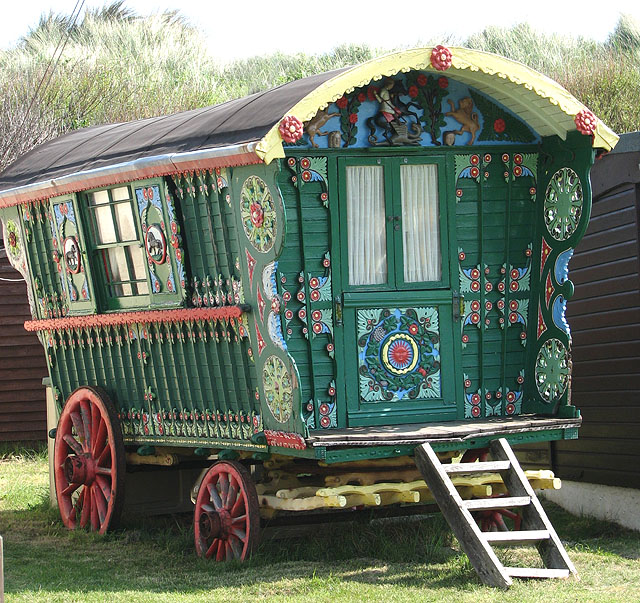June is Gypsy, Roma and Traveller History Month (GRTHM), which aims to raise awareness of and promote GRT history and culture.
It is widely recognised that raising awareness of different cultures is a key part of addressing prejudice and discrimination.
In this post – the second of two for GRTHM – we look at the inequalities and discrimination that GRT face across education, employment and health. We also highlight work to address these inequalities and raise awareness of GRT communities’ rich cultural heritage.
GRT communities experience many educational and health inequalities
The recent House of Commons report, ‘Tackling inequalities faced by Gypsy, Roma and Traveller communities’, sets out a comprehensive review of the available evidence across a range of areas.
In education, Gypsy and Traveller children leave school at a much earlier age and have lower attainment levels than non-GRT children, and only a handful go on to university each year. They also experience much higher rates of exclusions and non-attendance.
There are many reasons for this – from discrimination and bullying, to a lack of inclusion of GRT within the educational curriculum. There are also cultural issues to be addressed within the GRT community itself.
Scottish Traveller activist Davie Donaldson has spoken about the discrimination he faced in school where a teacher refused to “waste resources” by marking his homework because he was a Traveller, who she assumed was “not going to do anything with his education anyway”. He also discusses how many Travellers within his own community felt he was betraying his roots by attending university. This clearly illustrates the multi-faceted nature of the issue of supporting GRT children in education. The Traveller Movement addresses this and other related issues in their recently published guide to supporting GRT children in education.
Health outcomes for GRT communities are also very poor compared to other ethnic groups. Their life expectancy is 10 to 12 years less than that of the non-Traveller population. Maternal health outcomes are even more shocking – with one in five Gypsy Traveller mothers experiencing the loss of a child, compared to one in 100 in the non-Traveller community.
Poor health outcomes can be partially attributed to the difficulties that many experiences when accessing or registering for healthcare services due to discrimination or language and literacy barriers. There is also a lack of trust among GRT communities which can result in a lack of engagement with public health campaigns.
Historic fear of engagement with public services
Indeed, there is a historic wariness of public services among many in the GRT community.
In the 1800s, many Travellers had a well-placed fear of the ‘burkers’ – body-snatchers looking to provide the medical schools with bodies for dissection. Travellers felt particularly at risk because they lived on the margins of society. There are many Traveller stories about burkers that have been passed on from generation to generation.
Similarly, a fear of social services intervention also exists, following the forced removal of children from Traveller families. Some were taken into care, and others were deported to be servants in Canada or Australia.
Being aware of these cultural issues, along with the historic criminalisation and continued discrimination that GRT communities face, can help health and social services to understand and empathise with the GRT community when reaching out to them.
Poor employment outcomes and a lack of target support
Gypsies and Travellers were an essential part of the economy in the 19th Century and early 20th Century. Many were skilled tinsmiths, silversmiths, basketmakers or other crafters. They also played an important role as seasonal agricultural workers – for example, in the berry fields of Blair and farms of the north east of Scotland. They moved from place to place, and bringing news and selling and trading their wares. In the days before roads and motor vehicles, they were a lifeline for rural crofting communities who may have been many days travel away from the nearest settlement.
Time has rendered many traditional Traveller occupations redundant, and today employment outcomes for GRT groups are generally poor.
While more likely to be self-employed than the general population, the 2011 England and Wales Census found that Gypsies and Irish Travellers were the ethnic groups with the lowest employment rates, highest levels of economic inactivity, as well as the highest rates of unemployment.
However, unlike other minority groups, there has been no explicit government policies that support Gypsies or Travellers to enter employment or to take up apprenticeships and/or other training opportunities. Many Gypsies and Travellers have also reported being discriminated against by employers, making it more difficult for them to find and stay in work.
A lack of robust data
There is a lack of robust data about the different GRT groups in the UK – even something as seemingly simple as how many GRT people there are.
This is because most data collection exercises – including the Census and in the NHS – do not include distinct GRT categories. If an option exists at all, often it conflates the different GRT ethnicities into one generic tickbox, with no way to differentiate between the different ethnic minorities. This is an issue that is being increasingly addressed and there are plans to include a Roma category in the 2021 census.
However, there are also issues with under-reporting. Many people from GRT communities are reluctant to disclose their ethnicity, even when that option is available to them. This stems both from a lack of trust and the fear of discrimination.
So, while the 2011 Census recorded 58,000 people as Gypsy/Traveller in England and Wales, and a further 4,000 in Scotland, it is estimated that there are actually between 100,000 to 300,000 Gypsy/Traveller people and up to 200,000 Roma people living in the UK.
Raising awareness of GRT culture
While this all may make for some pretty depressing reading, there are some promising signs of progress.
From Corlinda Lee’s Victorian ‘Gypsy Balls’ – where the curious public could pay to come and see how a Gypsy lived and dressed, to Hamish Henderson catalysing the 1950s Scottish Folk Revival with the songs and stories of Scottish Travellers – there have been attempts to promote Gypsy and Traveller culture among the settled population.
Today, organisations and individuals such as The Traveller Movement, Friends, Families and Travellers, and Scottish Traveller activist Davie Donaldson strive to promote awareness of and equality for the GRT community.
The recent Tobar an Keir festival held by the Elphinstone Institute at Aberdeen University sought to illustrate traditional Traveller’s skills such as peg-making, and there is a wonderful Traveller’s exhibition – including two traditional bow tents – at the Highland Folk Museum in Newtonmore.
There are even more events planned for GRTHM – including an exhibition of Travellers’ art and photography at the Scottish Parliament.
The hard work may be beginning to pay off – just last week, the government announced a new national strategy to tackle the inequalities faced by Gypsies, Roma and Travellers.
Using knowledge to fight prejudice
While there is without doubt an urgent need for practical measures to address the inequalities that the GRT community face – such as an increase in the number of authorised sites available – addressing the fundamental lack of awareness and knowledge of GRT culture is a key step towards eradicating prejudice towards GRT communities.
As well as raising awareness among the general public, there is also a need to for people working in public services – from health and social services to education and even politics – to have a better awareness and understanding of Traveller culture and history, and how this affects their present day needs and experiences.
Gypsy, Roma and Traveller History Month is an ideal opportunity to address the huge gap that exists in society’s collective knowledge about the GRT way of life, their history, culture and contribution to society. All of which can help to combat the prejudice and discrimination that they continue to face.
Follow us on Twitter to discover which topics are interesting our research team.
Share
Related Posts
Supporting residents on the decarbonisation journey: leveraging data for effective retrofit projects
As the drive towards decarbonisation intensifies, the social housing sector’s ability to collect, store and manage vast amounts of data becomes increasingly critical. With a shared goal of creating warmer, carbon-free homes, housing associations’ strategic use of data is essential ....
A recent item on BBC Radio 4’s Today programme generated an unusually high number of responses from listeners. A man who had lost his job in the financial services sector at the age of 57 described his difficulty in trying ....
The recent spikes in energy costs have thrown into sharp focus the challenge of heating our homes. Domestic heating is important, not just for our comfort and wellbeing, but to reduce humidity and prevent condensation. But because traditional heating systems ....


